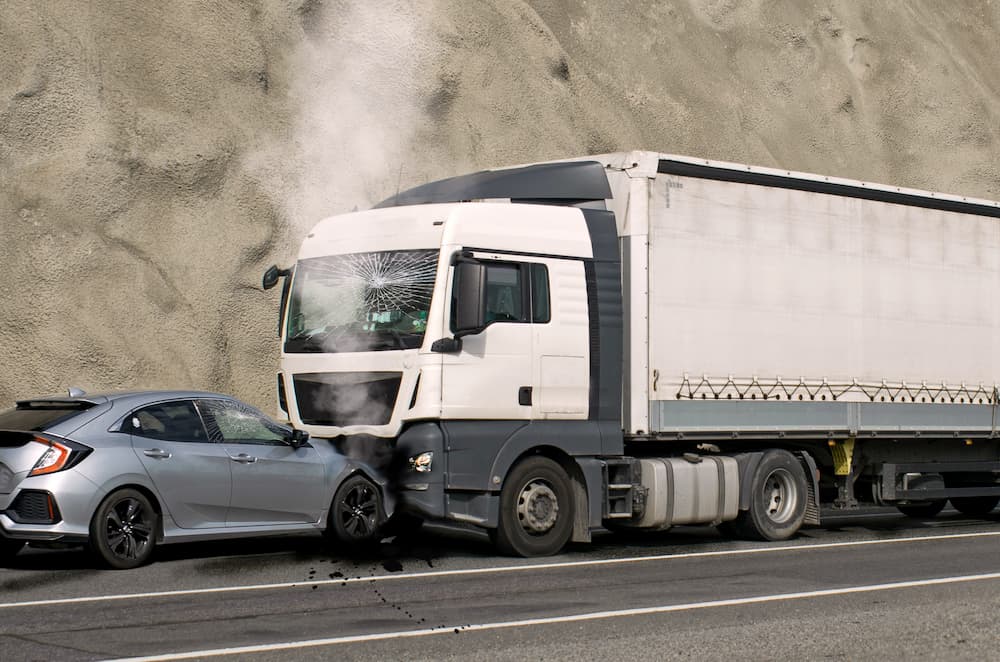- Types of insurance coverage for food trucks
- Food truck insurance requirements
- Benefits of food truck insurance
- How much is food truck insurance monthly?
- Which companies offer food truck insurance?
- How is food truck insurance cost calculated?
- How to save on food truck business insurance
- How to get food truck business insurance
- What our expert says
- Food truck business insurance: FAQ
Types of insurance coverage for food trucks
As a food truck owner, you may need several types of insurance. Your policy may include one or more of the following main types of coverage:
- General liability: All businesses face the risk of lawsuits. If a customer is injured while visiting your truck, or becomes ill after eating food they purchased from you, general liability insurance pays for the damages, attorney fees and other legal defense expenses.
- Commercial auto: Food trucks must have commercial auto coverage to legally operate. At a minimum, a commercial auto policy includes bodily liability and property damage protection that meets state requirements. However, considering the high cost of food trucks, you may also want to add comprehensive and collision insurance to your policy.
- Property insurance: Property coverage pays for damages to your truck and equipment if it's vandalized or damaged in a storm or fire.
- Workers’ compensation: If you have employees, most states require you to have workers’ compensation coverage. Workers’ compensation pays for your employees' medical care and a percentage of their lost wages if they're injured or become ill while working.
Other business insurance options
Depending on your food truck business, you may need to add the following coverages to your policy:
- Liquor liability: If you sell beer, wine or mixed drinks from your food truck, you’ll need liquor liability insurance. This type of insurance helps cover the costs of bodily injuries or property damage that occur as a result of alcohol consumed by a customer of your business.
- Perishable food: If your freezer breaks or there's a power outage in your area and your food spoils, perishable food insurance helps replace the spoiled or contaminated food.
- Cyber liability: As a food truck owner, you may handle credit card payments or collect customer information, such as their email addresses, for your rewards program. As such, there's a risk of your customers' information being compromised by hackers. Cyber liability insurance provides coverage for the legal expenses and damages related to data breaches or hacking.
Food truck insurance requirements
The insurance requirements for food trucks vary by state. In general, there are two types of insurance that are required:
- Commercial auto: In nearly every state, any vehicle registered within the state — including commercial vehicles — is required to have insurance that meets the state's liability requirements. In many states, the required liability minimums for commercial auto coverage are higher than the limits for personal auto policies.
- Workers’ compensation: In nearly every state, you need to have workers’ compensation once you hire employees. Texas is the only exception.
Benefits of food truck insurance
There are several benefits to food truck insurance:
- Protect your assets: You work hard to run and grow your business. A lawsuit can wreck your business' financials, so maintaining a policy with general liability protection is essential coverage.
- Financial protection: A food truck, food preparation equipment and raw ingredients can be expensive. A policy that includes property damage and mechanical or equipment protection can ensure you're reimbursed for your property that's damaged or stolen.
- Reduces downtime: If your food truck was damaged in an accident, you could be out of business for weeks or even months. But, with the appropriate coverage, you can repair or replace your damaged property quickly, helping you get back to selling your food.
How much is food truck insurance monthly?
The cost of a food truck insurance policy varies based on your location, the value of your truck and equipment and the types of coverage you include on your policy. A basic general liability policy typically starts at about $40 per month, according to small business insurance broker Insureon, but the cost can increase significantly with higher coverage limits and add-ons.
Other prices, according to Insureon:
- Commercial auto insurance: $170 per month
- Commercial property insurance: $67 per month
- Workers' compensation insurance: $78 per month
- Liquor liability insurance: $58 per month
- Cyber insurance: $145 per month
For a comprehensive policy, you can expect to pay anywhere from $1,500 to $4,000 per year, according to our analysis.
Which companies offer food truck insurance?
Food truck insurance policies are available from a variety of companies, including the following insurers:
- Chubb: Depending on your location, you may be eligible for a business owner’s policy (a package of coverages, including liability and property damage protection), general liability, workers compensation and cyber liability insurance.
- Food Liability Insurance Program: This company specializes in coverage for food trucks and restaurants. It offers core insurance products, as well as more specialized coverage, such as liquor liability and cyber liability protection.
- GEICO: GEICO has a business owner’s policy designed for food truck owners. It includes protection for liabilities and basic property damage.
- Hiscox: Hiscox has a broad suite of insurance products, allowing food truck owners to customize a package of insurance types to protect their business.
- Progressive Commercial: Through Progressive, you can secure general liability insurance, workers’ compensation and commercial auto coverage.
How is food truck insurance cost calculated?
Food truck insurance costs vary significantly by location, business and other factors.
- Location: If you operate a business in an area with a higher cost of living, you'll likely pay a higher rate because labor and supplies will be more expensive.
- Business size: As your business grows, and you add trucks, hire more employees or rent a storage facility, your premiums will increase.
- Truck value: The value of your truck and its equipment will affect your cost. A new, state-of-the-art truck will be more costly to insure than an older, second-hand truck.
- Add-ons: If you add optional coverages to your policy, such as property damage protection, you'll pay a higher rate.
How to save on food truck business insurance
You can use the following tips to save on food truck insurance:
- Bundle policies: Some insurers give discounts to customers who bundle multiple forms of coverage together.
- Raise your deductible: The higher your deductible is, the lower your premium will be. Opting for a higher premium means you'll have to pay more out of pocket if you need to file a claim, but you'll have lower premiums.
- Install safety and security features: You may be eligible for discounts if you install safety and security features like alarms and anti-theft devices.
- Shop around: Rates vary by insurance company, so request quotes from several food truck insurance providers to find the best rates.
How to get food truck business insurance
To purchase food truck insurance, follow these steps:
- Assess your risks: Think about your business operations and what risks you may face. This exercise will help you decide which types of food truck insurance you need (and which you can skip).
- Compare options: Most insurers allow you to create a policy and purchase coverage online. You can get quotes from several insurers, customize what coverages to include and compare rates online.
- Purchase insurance: Once you find the right insurance package, you can choose a policy effective date and pay your first premiums to activate your coverage.

What our expert says
Food truck business insurance: FAQ
Who needs food truck business insurance?
Whether you're running a business selling cakes on weekends from a used truck or operating an upscale tapas food truck, any food truck business will need some form of insurance. At minimum, you'll need a commercial auto policy and general liability insurance, and, if you have employees, you'll also need workers’ compensation.
Can I get insurance on a rental food truck business?
If you're renting a food truck for your business, you can usually purchase food truck insurance with general liability, property damage and other protections.
Does business insurance cover food delivery?
Depending on your insurer, coverage for food deliveries may be included with your commercial auto policy. However, not all policies include "hire and reward" coverage – commercial auto insurance that covers those who transport people and goods – so you may need additional coverage.
Do you need special insurance to deliver food?
If you plan on delivering food, you'll need a policy that includes hire and reward insurance. It provides coverage for your vehicles, the goods you transport and public liability.






